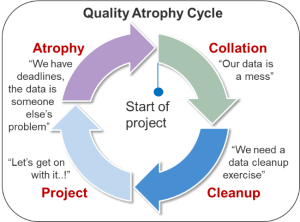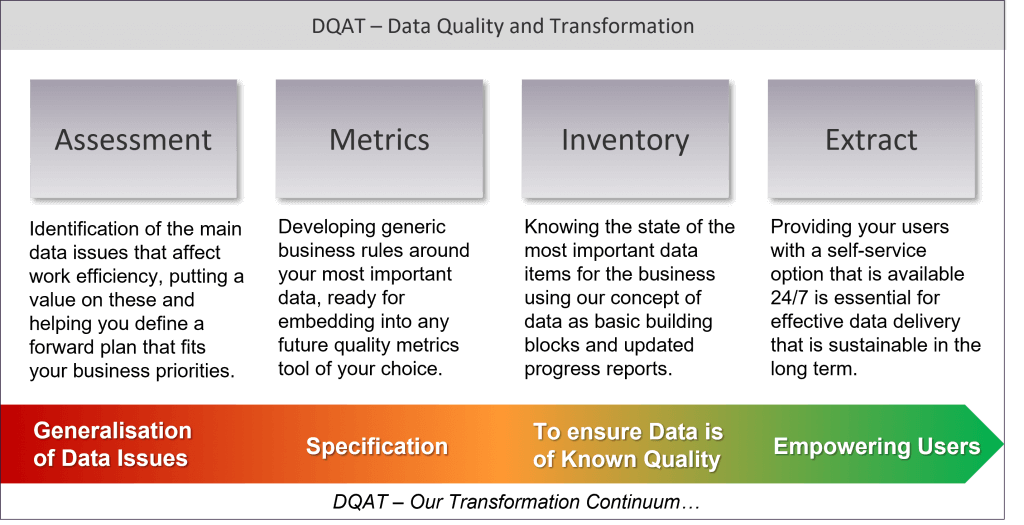SOFTWARE APPLICATIONS
GEO - Geologists
WellXP - Administrators
WellSTORE - Administrators
INDUSTRY COURSES
Introduction to Data Management
Smart Workflows and Transition Management
Deriving value in IO through Data Analytics
Geologix Ltd’s DQAT service is transformational for your people and for your business – ensuring that expensive and time-consuming data quality projects are retained, maintained and continue to add value.
Challenge
Data Quality projects are undertaken and completed successfully, before being handed over to the business, whereupon they fail, mainly due to a lack of basic housekeeping discipline or a general absence of process, resulting in data degradation and a significant reduction in productivity and output.
This “data atrophy” goes unnoticed until a “spillpoint” occurs, when the amount of data errors (duplication, variation in naming, missing attributes, wrong values etc) are recognised in an “our data is a mess” moment. This could be months or even years later, depending on the quantity and importance of the data, and usually coincides with data inventory and quality checking at the start of a new project.

Solution

The Geologix DQAT methodology is a sustainable, holistic four-part framework proven to transform and maintain data quality levels in your organisation.
The four stages are focused on achieving trusted data, which is fundamental to creating value. Assessment and readiness analyses along with practical workshop courses enable us to set tangible KPIs to establish a long term, high value data culture.
The cost of not being able to trust your data is significant. This cost is calculated and demonstrated as part of the assessment, giving you clear business value of the engagement.
We also offer an impact assessment of your current data quality tools, or can help you acquire and implement the appropriate tools for your data quality challenges.
Outcome
Your organisation can be confident that its project data is trusted and of high quality, and can be relied upon to deliver trusted outcomes.
Non-productive time is reduced at a cumulative level, as users do not have to spend time independently verifying and cross-checking data sets before they can embark on a new project.
